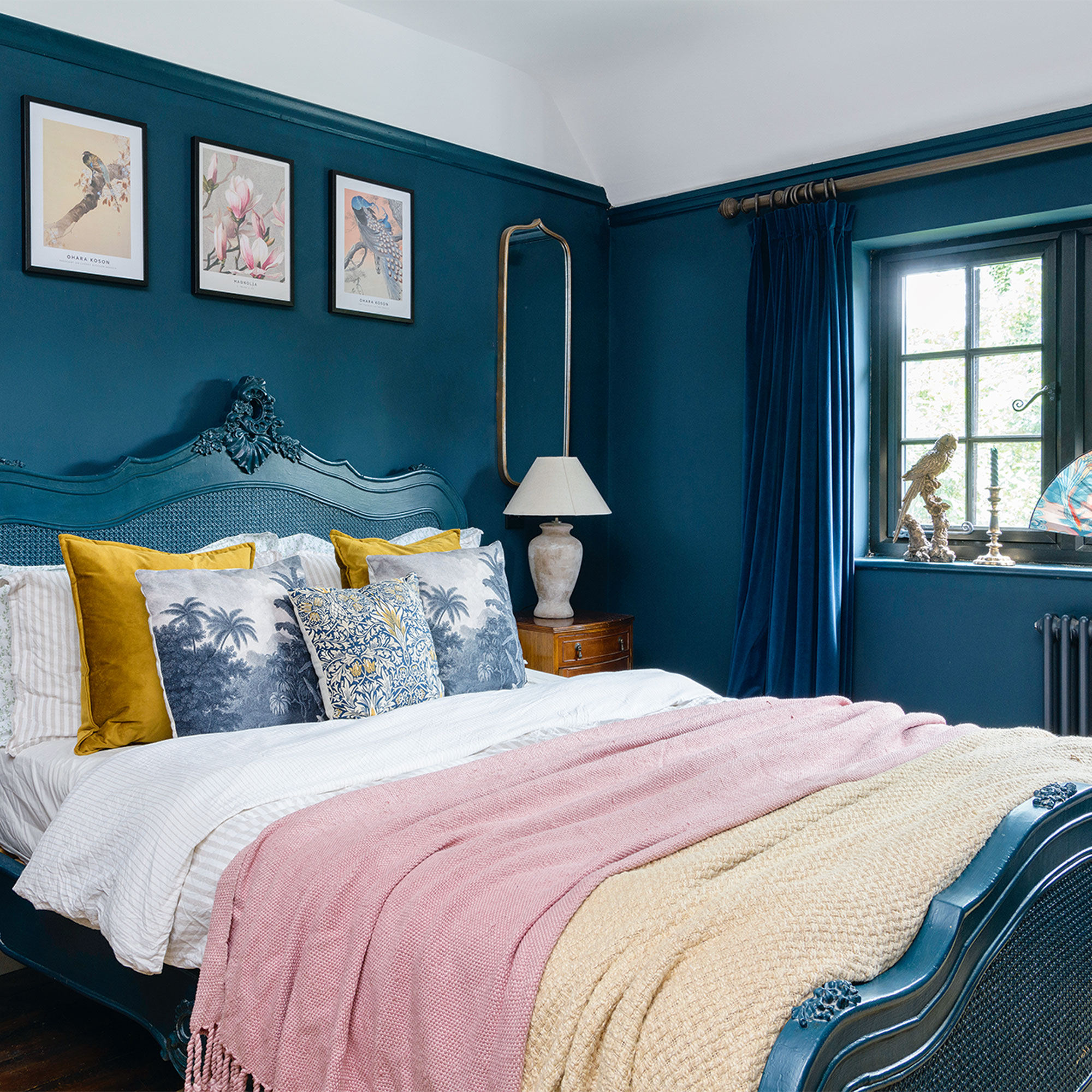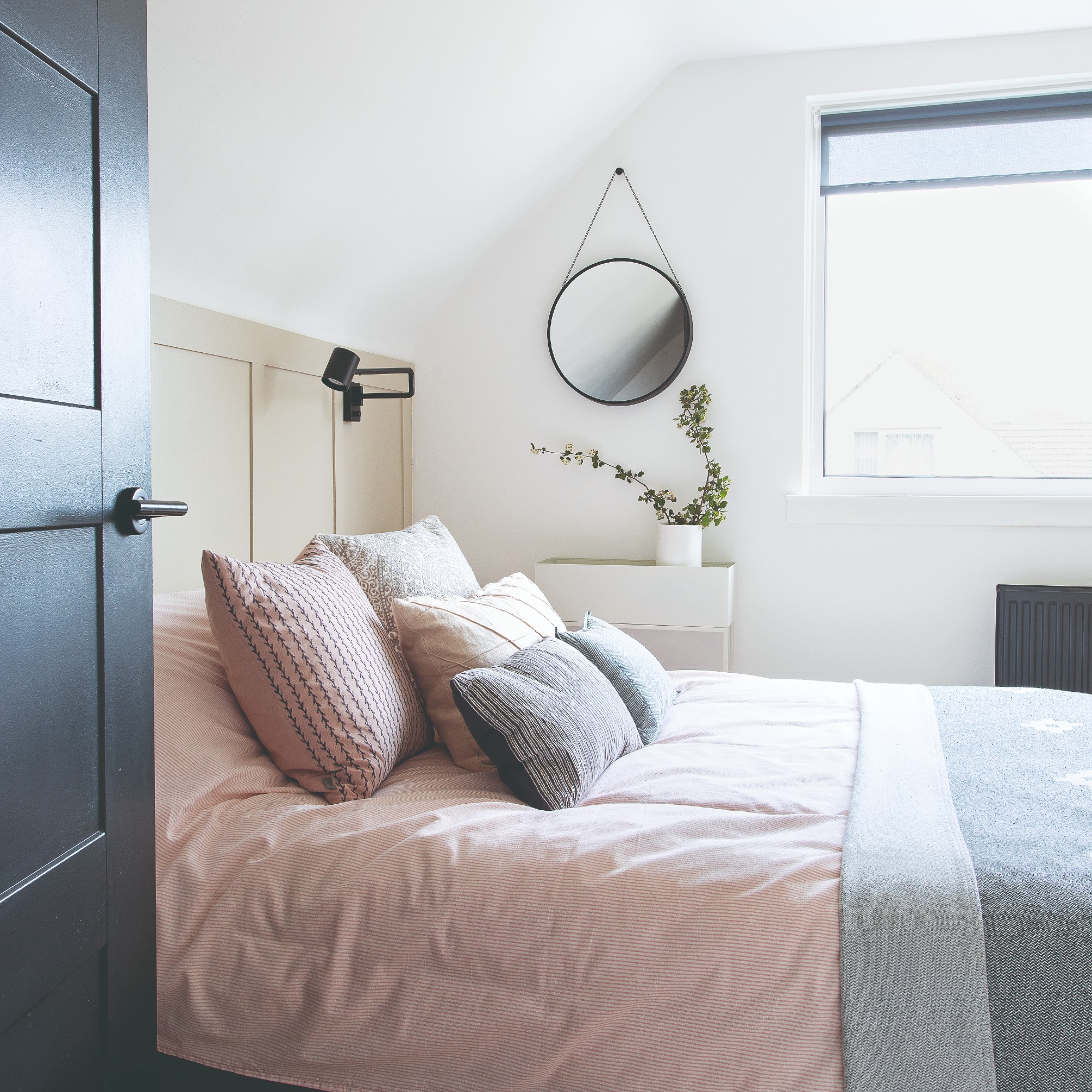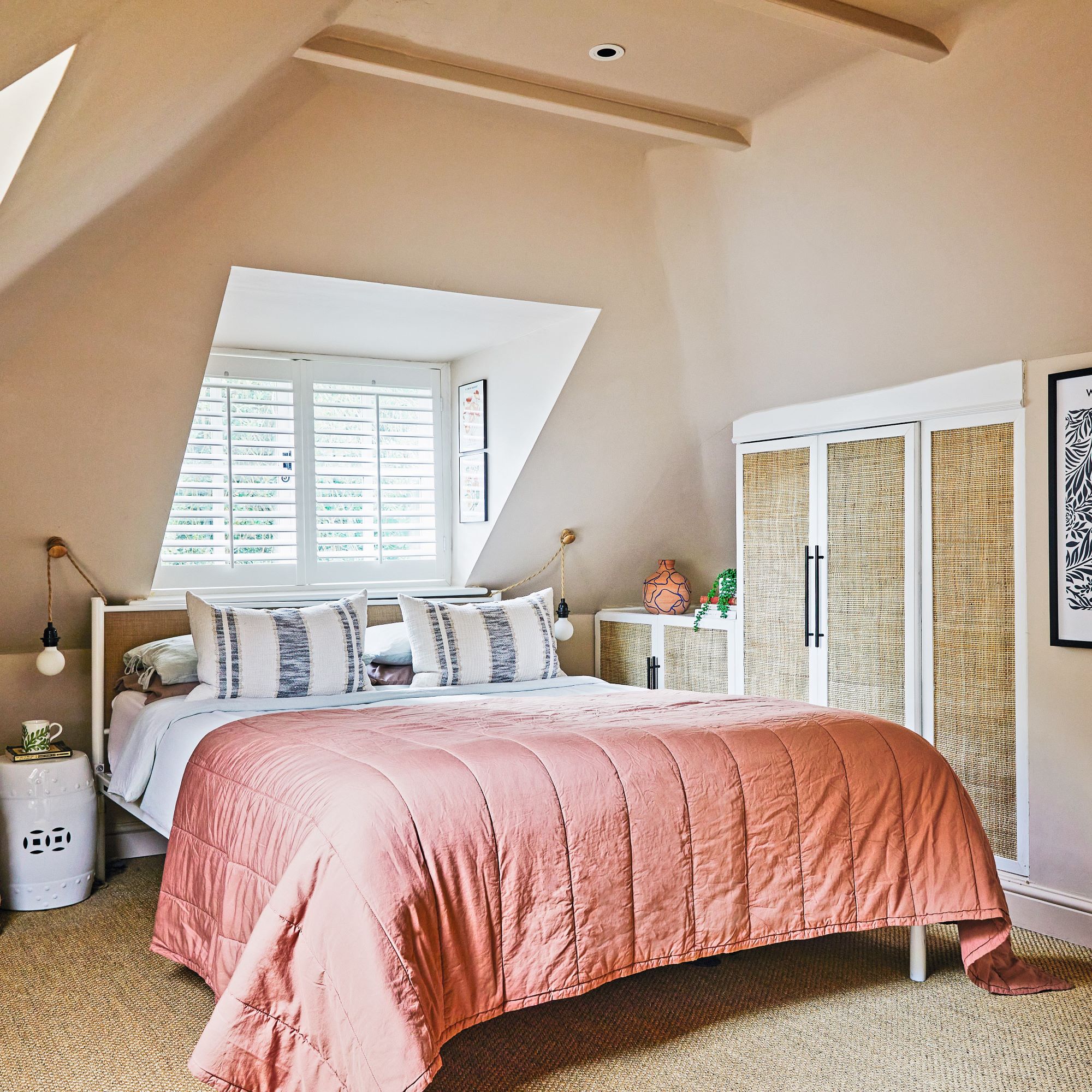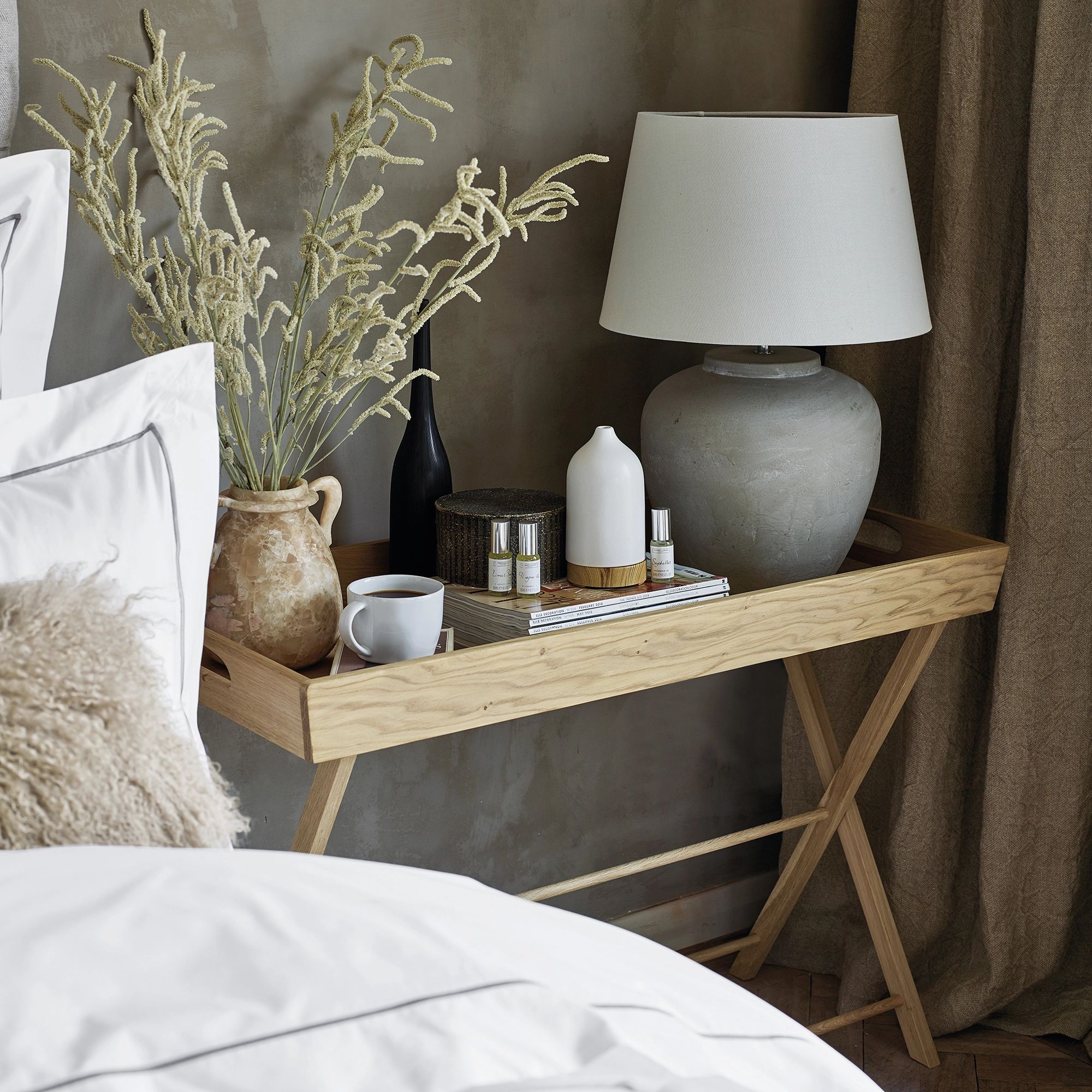
What keeps you awake at night? If it’s too much late-night cheese or scary movies, then the problem’s only a temporary one. But if you find your brain buzzing when you’re desperate to drop off night after night, then the soothing scent of certain essential oils can help deliver a better night's sleep.
When it comes to the senses and how to sleep better, smell is the most influential on your mood, so choose your home fragrances accordingly.
Neuroscientist and wellbeing podcaster Dr Tara Swart explains, ‘Scent influences our mood and emotions as the olfactory nerve goes directly from the bridge of the nose to the olfaction centres of the brain which are very close to the memory and emotion centres. This is the only one of the five senses that connects directly without going via the thalamus, so the connection is strong.
‘Certain scents can make us feel relaxed and sleepy as they modulate the automatic nervous system towards the parasympathetic (rest and relax) state. Essential oils can be used to anchor your bedtime routine. Regularly using a certain smell also creates an association with sleep.’
The best essential oils for sleep
We asked Vicky Watson, aromatherapist and wellbeing coach at Infinite Harmony, for her advice. ‘If you struggle with drifting off to sleep or struggle with insomnia, essential oils are a useful addition to your tool kit.
'There are a number of oils that you can try but it’s often helpful to understand what is causing the sleeplessness so that you can use an oil that helps with the underlying cause. The following oils are those that I turn to on a regular basis:’
1. Lavender

‘Lavender is a floral oil and I would argue that it should be in everyone’s essential oil first aid kit. Not only is it useful for helping us drift off to sleep but it can also help headaches, stress and tension and be used to treat bites, stings, sunburn, etc.
'It is generally safe for children as well but avoid with babies under six months. Add to a base oil and use as a soothing massage, in a diffuser or add to a warm bath.’
2. Chamomile
‘Another floral oil but with a more herbaceous scent to it. It’s calming, sedating, soothing and antispasmodic so if you are struggling to sleep because of menstrual or digestive issues then this oil could help you. Blending with lavender into a massage oil and applying before bed can help you drift off.’

3. Sweet marjoram
‘This is one of my favourite oils, it is herbal, relaxing and calming. It has a sedating effect and is useful for anxiety and if you are overworked or suffer with headaches and migraines. Blend into a base oil to use as part of your bedtime routine.’
4. Clary sage
‘This is a lovely oil but must be well diluted into a base oil, as it can be highly sedating. It has a herbaceous smell and is not to everyone’s tastes. It helps with stress and anxiety but should be avoided in pregnancy or if you have high blood pressure. Do not drink alcohol while using this oil.’

5. Ylang ylang
‘This is a strongly scented floral oil and a little goes a long way. It has a calming and sedating effect on the nervous system, and can help with stress and tension. Mix one drop into a base oil or use in a warm bath to help you drift off to sleep.’
Where to buy essential oils
- Neals Yard - a huge selection of essential oils instore and online, starting at £8
- Nikura - Pick up a curated bestseller set of 10 oils for £20
- Holland and Barret - buy one and get one half price
When shopping for an essential oil choose as high a quality oil as possible. Indicators that it's a good quality include where it is in an amber bottle, it should have the Latin plant name listed on the bottle and say where it was produced.

How to use essential oils
Essential oils can be used in a diffuser in your bedroom, in a warm bath or mixed with distilled (or boiled and cooled) water as a pillow spray. Before diving in, though, heed Vicky’s dos and don’ts for using them safely:
- Never ingest them.
- Blend a 2% dilution into a base oil; never apply them directly to the skin.
- Mix oils to see what you like best, but I don’t tend to use more than three in a blend as the strong scents may give you a headache.
- In a warm bath, mix them with a water-soluble base or they will float on the surface.
- Use an electric (non-candle-based) diffuser to prevent fire.
This plug-in diffuser is one of TWC's bestsellers for a reason. Easy to use, all you need to do is pour some drops of your favourite scent in the small bottle inside and away you go.
As an affordable electric diffuser, you can't go wrong with the M&S version, which looks as chic as any high-end model.
The White Company is one of our favourite scent brands and this diffuser with its sleek ceramic cover is stylish enough to have out of display.
FAQs
How do you use essential oils for deep sleep?
Sleep coach Dave Gibson says, ‘Studies show that Lavender is a great scent to aid relaxation and fall asleep faster. It may even help you get more deep sleep, which is key for feeling refreshed. Lavender oil can be used in a diffuser, in your bath or as massage oil, a spray on your pillow. Lavender sachets or drinking it in a tea before bed are other options.’
How do I activate deep sleep?
‘Looking for more ways to boost your sleep quality? Dave continues, ‘Deep sleep restores the body physically, supports the immune system and detoxes the brain. It can be increased by maintaining a consistent bed and wake time which strengthens the body clock, having a relaxing bedtime routine, including meditation or yoga, and taking regular exercise.’
Also, consider the decor of your bedroom to make it a sleep-supporting space for your needs. For example, shop strategically for bedding if you suffer from night sweats, adjust light levels for a darker room and ensure your bedroom wall colour is soothing, not stimulating.
Now take a deep breath in and sleep easy with a little essential oil assistance.







